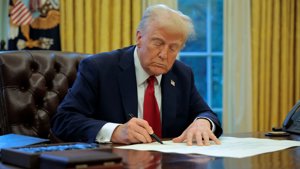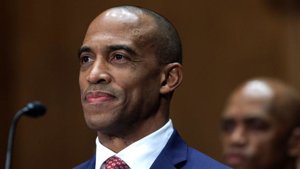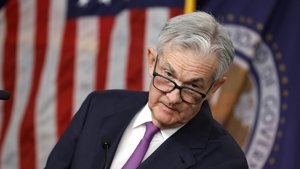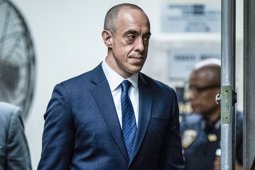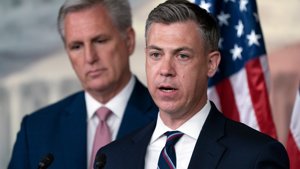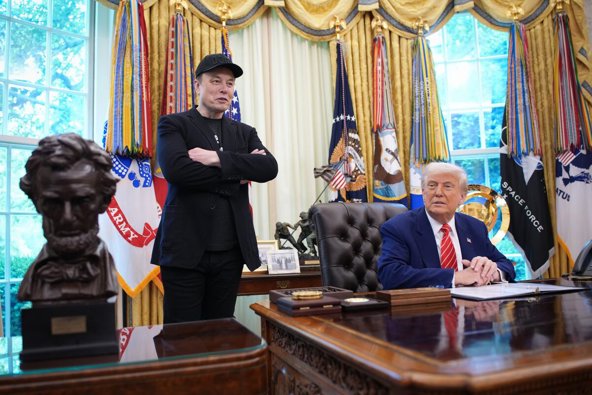
Musk Leaves DOGE, Eyes $1 Trillion in Cuts
Elon Musk departs DOGE with $175B in cuts, but vows continued influence in the Trump administration’s cost-saving drive.
Trump and Musk Mark Transition at White House Event
Elon Musk officially ended his tenure as head of the Department of Government Efficiency (DOGE) on Friday during a joint press conference with President Donald Trump in the Oval Office. While Musk’s formal role concludes, both he and the president emphasized that his advisory influence will persist.
“This will be his last day, but not really, because he will, always, be with us,” Trump said. “Elon is terrific!”
Musk’s departure comes after a high-impact 130-day period during which DOGE executed aggressive cost-cutting across federal agencies. According to the DOGE website, the department achieved $175 billion in savings through asset sales, contract cancellations, and fraud reduction. That translates to an estimated $1,087 saved per taxpayer.
One of DOGE’s most dramatic actions was the dismantling of USAID programs, where 83% of initiatives and 5,200 contracts were terminated. Musk’s hands-on and controversial approach became a lightning rod in political discourse and spurred multiple lawsuits that challenged the legality of the cuts.
Controversy, Lawsuits, and Public Attention
Musk’s methods were often dramatic. At a February conservative conference, he wielded a chainsaw on stage to symbolize eliminating government waste. His confrontational style, combined with unfiltered public statements, drew criticism from opponents and fatigue among allies within the administration.
Despite the turbulence, Musk remained confident. “This is not the end of DOGE,” he said. “Only the beginning.” He added that total savings could eventually exceed $1 trillion. “DOGE is like a way of life… it’s permeating throughout the government,” Musk stated.
President Trump echoed the sentiment, highlighting wasteful spending, including $20 million allocated to an Arab-language version of Sesame Street and $8 million for experiments involving transgender mice. “Nobody knows what that’s all about,” Trump remarked during the presser.
Not all were pleased with Musk’s legacy. Democratic strategists accused Republicans of prioritizing billionaire tax breaks over lowering costs for working Americans. They pledged to continue using Musk as a symbol of Republican excess in upcoming elections.
Musk’s influence in electoral politics was also significant. He contributed nearly $300 million to Trump’s 2024 campaign and spent millions supporting conservative judicial candidates. In Wisconsin’s state Supreme Court race, Musk personally handed out $1 million checks to voters who had signed petitions, though the Republican-backed candidate ultimately lost.
Asked about resistance within government, Musk said the real challenge was sorting through “millions of line items” to determine what spending was justified. “Those who receive money, whether appropriately or not, always claim it’s appropriate,” he added.
Musk appeared at the farewell event with a visible black eye. When asked about it, he joked it was the result of “horsing around” with his five-year-old son. “Turns out even a 5-year-old punching you in the face… actually does this,” he laughed. Trump replied, “X could do it, if you knew X.”
Despite stepping down, Musk’s departure is unlikely to mark the end of his political presence. As President Trump moves toward further restructuring federal operations, Musk’s strategies and influence are expected to endure as both a playbook and political flashpoint in the 2026 midterms.

